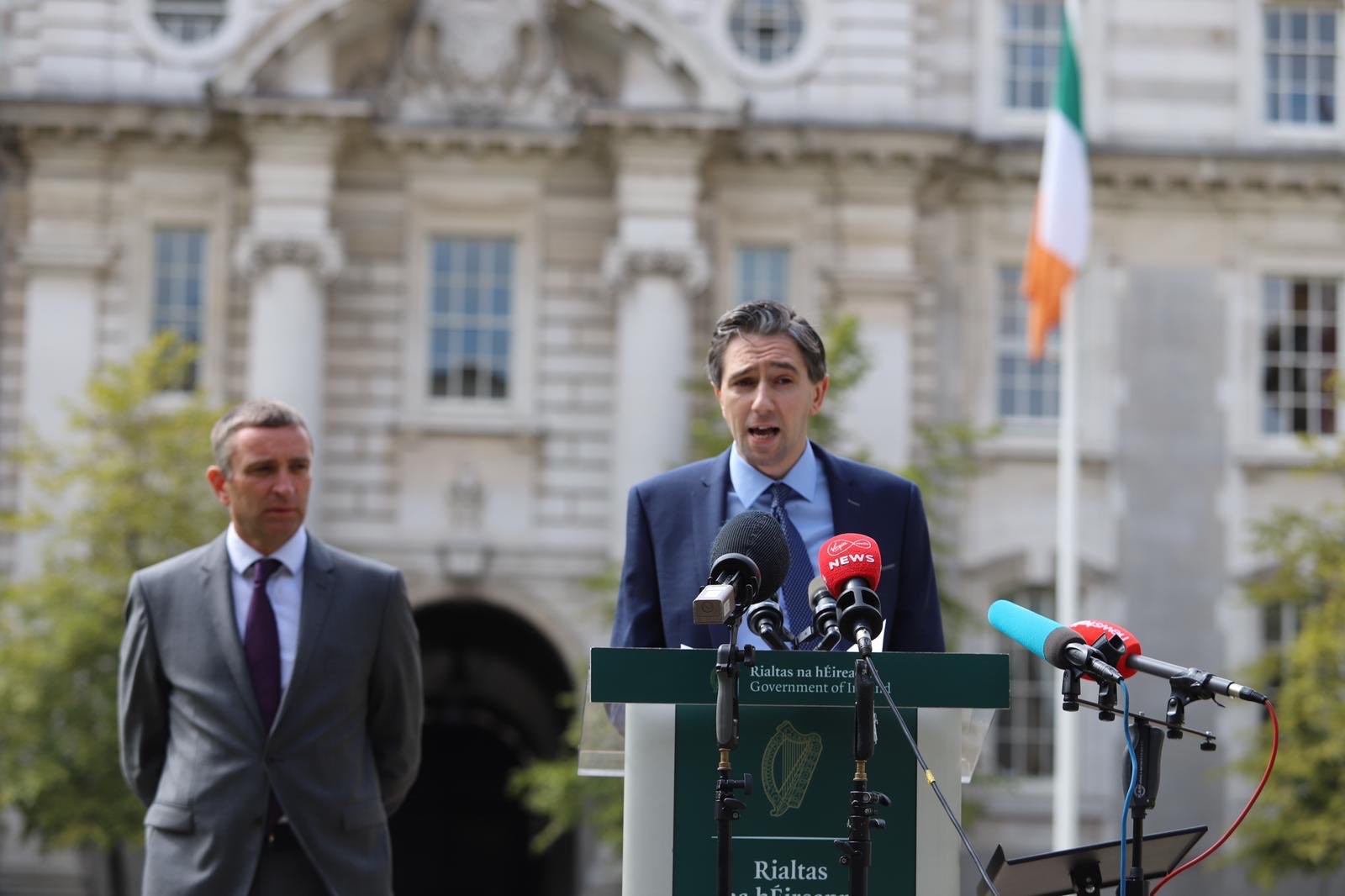Simon Harris plans on “overhauling” the CAO, looking at alternatives to the Leaving Cert in future years and wants to build more “college-owned” student accommodation.
This morning, the Minister for Further and Higher Education appeared on youth radio station SPIN1038, speaking about his plans for the future of higher education in Ireland.
Minster Harris joined presenter Louise Cantillon on ‘SPIN AR SCOIL’, a 10-week specialist Leaving Cert radio feature broadcast on SPIN South West and SPIN 1038 in Dublin.
Harris spoke about accommodation shortages, stating “we haven’t done nearly enough on student accommodation” and “we saw the difficulties this year with Covid where so many students were reliant on private developers”.
“It just doesn’t feel right to me that a student would nearly be competing with maybe a family for a limited number of houses in a city or a large town,” Harris said.
“I’ve asked my officials to come back to me before this summer with proposals on how we could do more on student accommodation.”
Harris continued: “Long story short, it means I want to see us build more college-owned student accommodation. No point misleading you, that’s not going to be ready for this September.”
“One of my priorities is to try and get the government and the state to build more state-owned or campus-owned student accommodation.”
Speaking about the CAO application, Harris said on SPIN this morning that the “CAO form is not the only way of getting to where you want to get to in life”.
He explained: “In fact, next year I plan on overhauling the CAO form because I think it narrows the conversation way way too much.”
“There are so many ways of getting where you want to get to in life,” Harris added. “I don’t like the fact that we have created a culture where it’s all about the points race.”
Speaking about an alternative to the Leaving Cert, Harris said that what Covid-19 has taught him is that “actually possible not to have a Leaving Cert and for the sky not to fall in and for the earth to continue to rotate on its axis and for students to get on into college life”.
“I don’t want to be flippant about it,” he added. “The Leaving Cert is long and tested and there are good points to be made, but we should be willing to open our minds to actually have a discussion about how we can do better by students and I’d love to be part of that conversation.”
Harris was questioned by Cantillon on the goal of establishing more College places in the next academic year, to which Harris explained that in “no year does everyone get what they’re looking for”.
“Every single year on average about 50% of students who apply to the CAO get their first choice and about 80% of students get one of their top 3 choices,” he said. What I’m saying to the leaving cert students this year is I’m trying to maintain those ratios, so I’m making sure you have as much of a chance as you would have in any other year.”
“It’s highly likely you’re going to see an increase in points this year because the more choice you give the more likely that is to happen.”
However, he added that they “have funding to increase the number of college places by just over 4,000” and a group has been established in the department to “see what more we can do beyond that”.
“I’m confident that we can do a bit more,” he added.
Harris then spoke about his commitment and previous investment into mental health services for third level students. He explained that “the first thing we’ve done” is to “very significantly” increase the budget for mental health services in College, stating that “we have put an extra €5 million into that”.
“That money goes to the Higher Education Authority, they give it out to each college and each college decides ‘what do we need for our students’,” he explained.
“I think it’s really important we hear their voice so that’s why I did set up this new Student Wellbeing and Engagement Group. It’s not chaired by a civil servant, it’s chaired by the President of the Students Union in Ireland, Lorna Fitzpatrick.”
Harris went on: “The extra funding we put in place this year, most of that is after going towards increasing the number of counsellors available.”
“Now, it hasn’t been without challenges because people aren’t on campus, so people are obviously accessing services virtually – which is a challenge in and of itself,” Harris said. “Yes, I want to increase further the number of student counsellors. We sometimes don’t want to just access services face-to-face.”
“One of the best things I think we’ve all worked out is setting up a 24/7 helpline by text. There’s always someone at the end of that text line, anytime day or night 24/7 if you have an issue, anything that’s causing you stress.”
Harris added that “50808 is the number we should all try and make famous”, and there is “always someone at the end of that text line”.
When asked about what financial supports would be in place for students who may have had their financial situation changed by the pandemic, Harris said that “through nobody’s fault” parents may be out of work, “at least temporarily”.
“The SUSI scheme allows you to apply for what they call a ‘change of circumstance’ where your income in your family has suddenly changed,” he explained. “So check out that SUSI system, which is where I’d direct students to.”
In the interview with SPIN, Harris moved to emphasize to students that “your normal now is not going to be your normal forever”, adding that people are missing out on milestones such as their first year in College or their debs.
“Sometimes it feels like this is going to go on forever because it’s been going on a long time; it really isn’t.”






